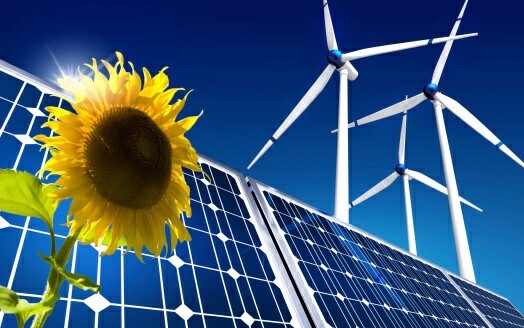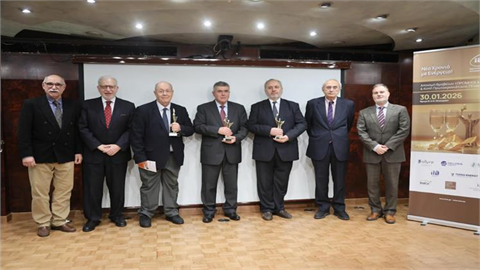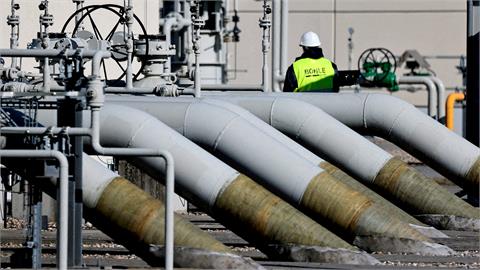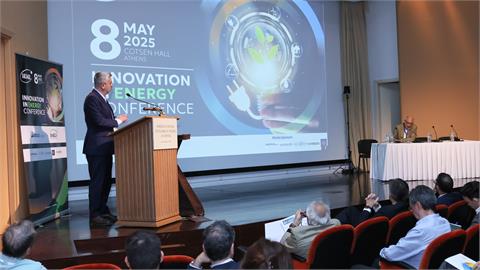At a time when discussions at EU level are culminating ahead of the head of governments meeting on July 16/17 which will seek agreement on how post coronavirus stimulus funds of some €750 billion are to be distributed between member countries, a lot of attention is being paid on the role that clean energy technologies are expected to play in resuscitating the European economy, which right now is suffering its worst post war recession.
The role of such "green" technologies is especially relevant for SE Europe which is greatly dependent on oil and gas imports but also on highly polluting coal and lignite power generation. At present some 41,5GW installed coal capacity plants are in operation with another 4,0 GW under construction. Hence, the decarbonization challenges arehuge especially since replacement capacity will have to come from RenewableEnergySources (RES) and natural gas.
In this context the publication on July 2 of IEA's latest special report on "Clean Energy Innovation – Energy Technology Perspectives 2020”is most relevant. The report assesses the ways in which clean energy innovation can be significantly accelerated to achieve net-zero emissions while enhancing energy security in a timeframe compatible with international climate and sustainable energy goals. The Special Report on Clean Energy Innovation is the first publication in the IEA’s revamped Energy Technology Perspectives (ETP) series and includes a comprehensive new tool analysing the market readiness of more than 400 clean energy technologies.

Without a major acceleration in clean energy innovation, countries and companies around the world will be unable to fulfil their pledges to bring their carbon emissions down to net-zero in the coming decades, stresses the IEA. "There is a stark disconnect today between the climate goals that governments and companies have set for themselves and the current state of affordable and reliable energy technologies that can realise these goals,” said Dr Fatih Birol, the IEA Executive Director. "This report examines how quickly energy innovation would have to move forward to bring all parts of the economy – including challenging sectors like long-distance transport and heavy industry – to net-zero emissions by 2050 without drastic changes to how we go about our lives. This analysis shows that getting there would hinge on technologies that have not yet even reached the market today. The message is very clear: in the absence of much faster clean energy innovation, achieving net-zero goals in 2050 will be all but impossible.”
A significant part of the challenge comes from major sectors where there are currently few technologies available for reducing emissions to zero, such as shipping, trucking, aviation and heavy industries like steel, cement and chemicals. Decarbonising these sectors will largely require the development of new technologies that are not currently in commercial use. However, the innovation process that takes a product from the research lab to the mass market can be long, and success is not guaranteed. It took decades for solar panels and batteries to reach the stage they are at now. Time is in even shorter supply now.
Notably, the report highlights the importance of making sure crucial clean energy solutions are ready in time for the start of multi-decade investment cycles in key industries. Doing so could create huge markets for new technologies and avoid locking in vast amounts of emissions for decades to come. If key technologies become available by 2030 to take advantage of the next round of plant refurbishments in heavy industry, nearly 60 gigatonnes of carbon emissions could be avoided.
Another issue is that many of the clean energy technologies that are available today – such as offshore wind turbines, electric vehicles and certain applications of carbon capture, utilisation and storage – need a continued push on innovation to bring down costs and accelerate deployment.
Around three-quarters of the cumulative reductions in carbon emissions that would be needed to move the world onto a sustainable path would come from technologies that have not yet reached full maturity, according to the IEA report. For example, it would require rapid progress in new battery designs that are still at the prototype stage now to shift long-distance transport from fossil fuels to electricity.
But the public and private sectors are currently falling short of delivering the innovation efforts to back up their net-zero ambitions – and the Covid-19 crisis is threatening to further undermine projects around the world focused on developing vital new energy technologies.
"A recent IEA survey revealed that companies that are developing net-zero emissions technologies consider it likely that their research and development budgets will be reduced, a clear sign of the damage that the Covid-19 crisis could do to clean energy innovation,” Dr Birol said. "Now is not the time to weaken support for this essential work. If anything, it is time to strengthen it.”
As IENE is now in the final stages of preparation of its flagship report, the "SEE Energy Outlook 2020/2021”, which is expected to be published early in 2021, IEA’s latest clean energy technology review is most relevant. IENE’s forthcoming "Outlook” report among others provides a thorough review of decarbonisation plans per country, for the 15-country group it covers, and outlines also the clean technologies per sector which are being promoted.




